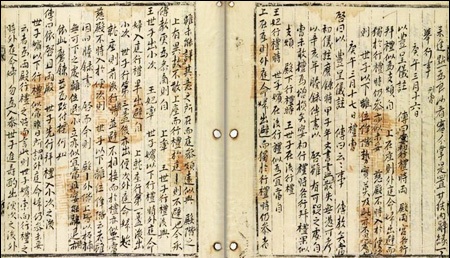|
French Expedition To Korea
The French expedition to Korea (french: Expédition française en Corée, ) was an 1866 punitive expedition undertaken by the Second French Empire against Joseon Korea in retaliation for the execution of seven French Catholic missionaries. The encounter over Ganghwa Island lasted nearly six weeks. The result was an eventual French retreat, and a check on French influence in the region. The encounter also confirmed Korea in its isolationism for another decade, until Japan forced it to open up to trade in 1876 through the Treaty of Ganghwa. In contemporary South Korea it is known as the ''Byeong-in yangyo'', or "Western disturbance of the ''byeong-in'' year". Background Throughout the history of the Joseon dynasty, Korea maintained a policy of strict isolationism from the outside world (with the exceptions being interaction with the Qing dynasty and occasional trading with Japan through the island of Tsushima). However, it did not succeed entirely in sealing itself off from ... [...More Info...] [...Related Items...] OR: [Wikipedia] [Google] [Baidu] |
Ganghwa Island
Ganghwa Island (Hangul ; Hanja ), also known by its native name Ganghwado, is a South Korean island in the estuary of the Han River. It is in the Yellow Sea, off Korea's west coast. The island is separated from Gimpo (on the South Korean mainland) by a narrow channel spanned by two bridges, and from Kaesong (Gaeseong) in North Korea by the main channel of the Han River. North Korea can be seen on clear days from less than two kilometers away on South Korea's Ganghwa Island allowing better views of North Korean villages than from elsewhere in South Korea. It is strategically located, controlling access to the river which runs through former Joseon and the present South Korean capital Seoul. Its fortifications were repeatedly attacked during the 19th century. With an area of , it constitutes most of Ganghwa County (a division of Incheon). The island has a population of about 65,500, half of whom live in Ganghwa Town (Ganghwa-eup) in the northeast. Name "Ganghwado" or "Ganghwa ... [...More Info...] [...Related Items...] OR: [Wikipedia] [Google] [Baidu] |
